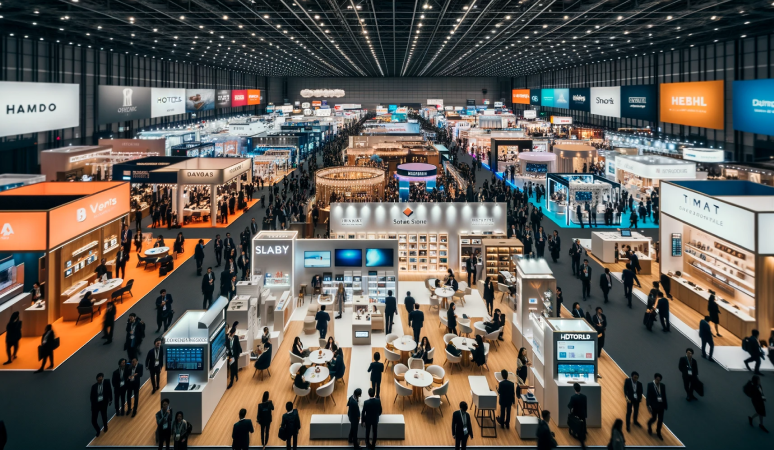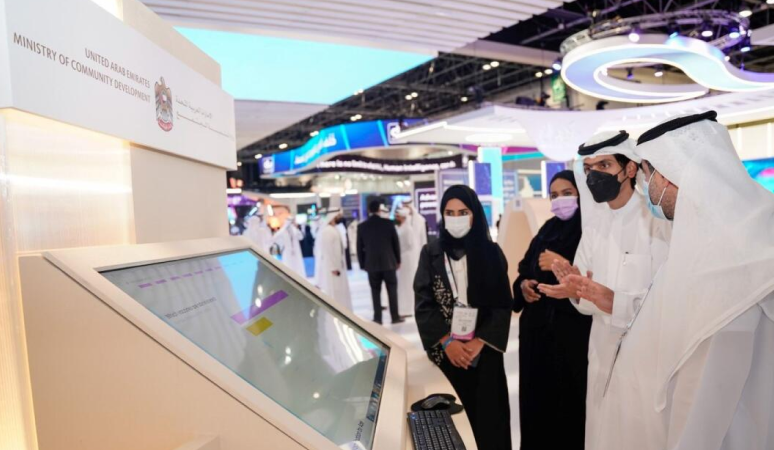Sustainability in Consumer Technology:...
Dubai, UAE – August – In 2024, sustainability...

In an age of rapid technological advancement, consumer tech is undergoing a profound transformation. From smartphones to home assistants and wearables, smart devices are becoming more intuitive, adaptive, and personalized. As we step into 2025, the future of smart devices hinges on one key factor: personalized user experiences.
Over the past decade, consumer technology has evolved from basic functionalities to devices that anticipate user needs, preferences, and behaviors. Personalized user experiences (UX) are no longer a futuristic concept but an integral part of our everyday tech. Whether it’s smart homes adjusting lighting and temperature based on user habits or fitness trackers tailoring workout plans based on health data, personalization is reshaping how consumers interact with their devices.
The need for personalization is driven by the increasing availability of data and the power of artificial intelligence (AI). Smart devices now gather and analyze vast amounts of information—from location and usage patterns to preferences and health metrics. With this data, AI algorithms can craft individualized experiences that offer convenience, efficiency, and a more seamless interaction with technology.
Artificial Intelligence and machine learning are the driving forces behind personalized smart devices. These technologies allow devices to learn from users' actions and behaviors, improving performance over time. For example, a voice assistant like Amazon's Alexa or Apple's Siri can become increasingly accurate by learning your speech patterns, preferences, and frequently used commands. Similarly, wearables like the Apple Watch or Fitbit can analyze users' health data to suggest exercise routines or offer reminders for medication, all tailored to their unique needs.
Moreover, AI-powered devices are becoming smarter in understanding emotional cues. By analyzing voice tone, facial expressions, and biometric data, these devices could soon provide responses and adapt in a way that feels more human-like, fostering deeper connections between technology and users.
As we look ahead, the potential for personalized user experiences in consumer tech is vast. Here are some exciting possibilities for the future:
Hyper-Personalized Smart Homes: Imagine a smart home that knows exactly how you like your coffee in the morning or adjusts the lighting and temperature based on your mood or daily routine. With advanced sensors, AI, and interconnected devices, homes will become more responsive to your individual needs, offering comfort and convenience at an entirely new level.
Health and Wellness Optimization: Future wearables could not only track your daily steps or calories burned but monitor your overall health with real-time alerts, offer custom health advice, and even predict potential health issues before they arise. Devices might use biometric sensors to detect stress levels, blood sugar fluctuations, and sleep patterns, providing tailored suggestions for better well-being.
Adaptive Interfaces: As interfaces become more intuitive, personalized smart devices will allow users to interact in a more natural way. Expect more seamless integration between voice, gesture, and even thought-based commands. Devices will adapt their functionality based on who is interacting with them, whether you’re speaking to a virtual assistant or tapping on a touchscreen.
Seamless Multi-Device Ecosystems: The future of personalized tech will involve devices working together in a highly integrated ecosystem. Think of your phone, tablet, smartwatch, and home assistant all syncing effortlessly to provide a cohesive user experience. For example, when you wake up, your phone might automatically sync with your coffee maker, adjusting the brew time to match your preferred schedule. At work, your smart devices will anticipate your needs and adjust notifications, settings, and reminders to keep you productive.
As consumer technology becomes more personalized, there are important questions around privacy, data security, and ethics. With devices constantly collecting personal data, users must be able to trust that their information is being handled responsibly. The future of personalized user experiences will require clear data usage policies, stronger cybersecurity measures, and transparent practices from companies.
Additionally, there is the question of device dependence and the impact on human behavior. While personalized devices offer unmatched convenience, there needs to be a balance between automation and human interaction, ensuring that consumers retain control and agency over their technology.
Personalized user experiences are setting the stage for the next era of consumer technology, with smart devices becoming more attuned to our unique needs, behaviors, and preferences. AI and machine learning are at the heart of this evolution, enabling technology to adapt in ways we once thought impossible. However, with this innovation comes a responsibility to ensure privacy, security, and ethical considerations are prioritized. The future is undoubtedly smart, but it must also be responsible and human-centered.

Dubai, UAE – August – In 2024, sustainability...

Dubai, UAE – September – Healthcare technology is...

Dubai, UAE – November – In 2024, AI-powered...